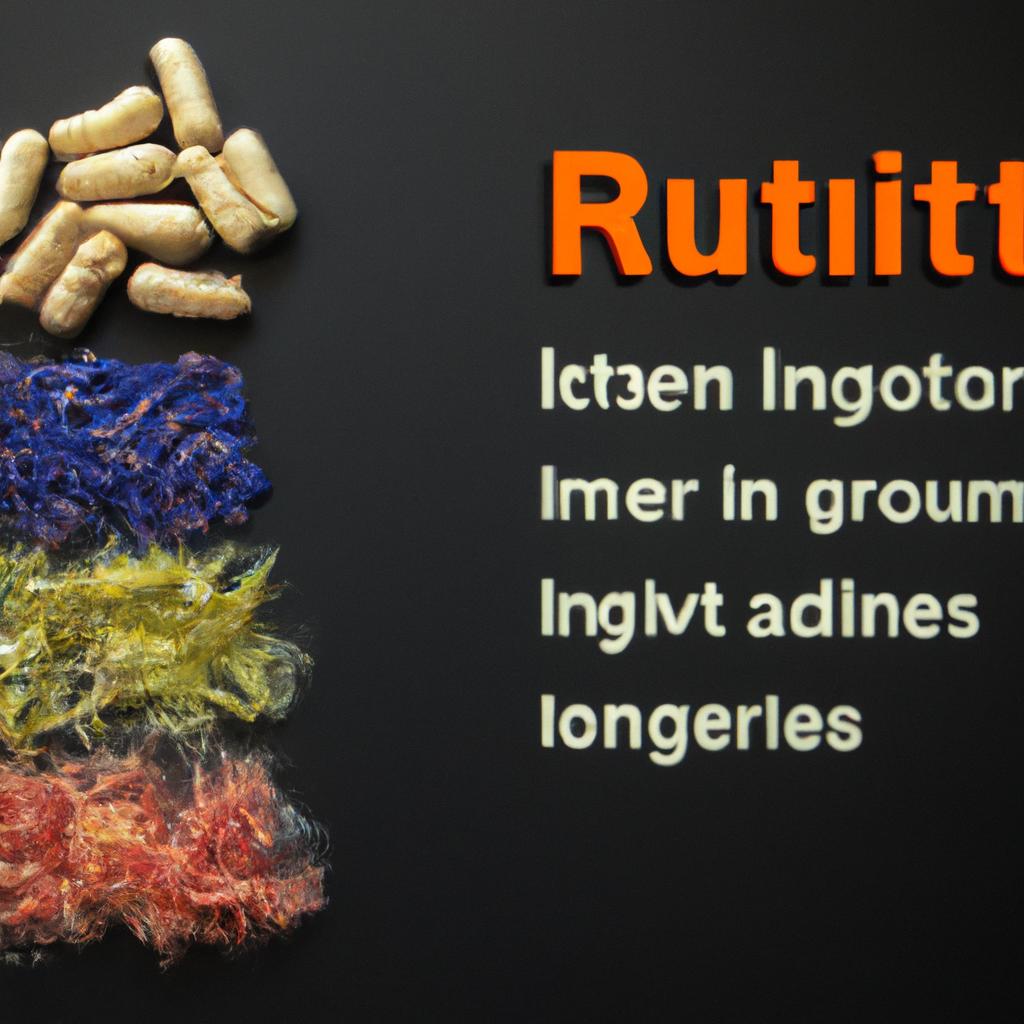The Role of Gut Health in Managing Inflammation: How Microbiome Diversity Influences Recovery and Athletic Performance.
The Role of Gut Health in Managing Inflammation: How Microbiome Diversity Influences Recovery and Athletic Performance
In the realm of sports and fitness, maintaining peak performance and rapid recovery is paramount for athletes. However, one critical yet often overlooked aspect of athletic success is gut health. Recent studies have illuminated the profound connection between the gut microbiome, inflammation, and overall athletic performance. This blog post will explore how microbiome diversity influences recovery and athletic performance, offering insights into nutrition, exercise, and health benefits.
Understanding the Gut Microbiome
What is the Gut Microbiome?
The gut microbiome consists of trillions of microorganisms, including bacteria, viruses, fungi, and other microbes that reside in our digestive tract. These microorganisms play a crucial role in various bodily functions, including digestion, immune response, and even mental health. Moreover, a diverse microbiome is often linked to better health outcomes.
The Link Between Gut Health and Inflammation
Inflammation is a natural response of the body to injury or infection. However, chronic inflammation can lead to various health issues, including autoimmune diseases, obesity, and even impaired athletic performance. Consequently, maintaining a balanced gut microbiome can significantly influence inflammation levels in the body.
Research indicates that a diverse microbiome can modulate inflammation through several mechanisms, including the production of anti-inflammatory compounds and the regulation of immune responses. Therefore, understanding how to promote microbiome diversity is crucial for athletes aiming to manage inflammation effectively.
Nutrition Tips for a Healthy Gut
Foods that Promote Microbiome Diversity
To foster a diverse gut microbiome, athletes should focus on a balanced diet rich in whole foods. This includes:
1. **Fruits and Vegetables**: Aim for a variety of colors and types. Foods like berries, leafy greens, and cruciferous vegetables are highly beneficial.
2. **Fermented Foods**: Incorporating yogurt, kefir, sauerkraut, and kimchi can introduce beneficial probiotics to your gut.
3. **Whole Grains**: Foods like oats, quinoa, and brown rice provide essential fibers that feed good bacteria.
4. **Healthy Fats**: Avocados, nuts, and olive oil can also support gut health through their anti-inflammatory properties.
On the other hand, it’s vital to limit processed foods, sugars, and artificial additives, as these can negatively impact gut health and promote inflammation.
The Role of Hydration
Moreover, hydration plays a significant role in gut health. Drinking sufficient water aids digestion and promotes the transportation of nutrients, facilitating a healthy microbiome. Consequently, athletes should ensure they are well-hydrated, especially during rigorous training sessions.
Exercise Advice for Reducing Inflammation
The Impact of Physical Activity on Gut Health
Regular exercise is not only beneficial for physical fitness but also plays an essential role in promoting gut health. Engaging in moderate-intensity activities, such as jogging, cycling, or swimming, can enhance microbiome diversity.
Furthermore, exercise has been shown to reduce markers of inflammation in the body. Therefore, integrating a consistent workout regimen can help athletes manage inflammation more effectively.
Recovery Strategies
In addition to exercise, recovery strategies are vital for replenishing energy and restoring the body’s balance. Incorporating low-intensity activities, such as yoga or stretching, can promote blood flow and enhance gut health. Moreover, these activities can help manage stress, which is another contributor to inflammation.
Health Benefits of a Diverse Microbiome
Enhanced Athletic Performance
Interestingly, a healthy gut microbiome can significantly enhance athletic performance. Athletes with greater microbiome diversity often experience improved energy levels, better nutrient absorption, and enhanced recovery times. Therefore, investing in gut health can lead to improved performance on the field or track.
Immune System Support
Moreover, a well-balanced microbiome supports the immune system, reducing the risk of illness and infection. This is particularly important for athletes, who are often exposed to stressful conditions that can compromise their immune defenses. By fostering microbiome diversity, athletes can bolster their immunity and maintain optimal performance levels.
Mental Health Benefits
In addition to physical health, gut health has been linked to mental well-being. The gut-brain axis connects the digestive system and the brain, suggesting that a healthy gut can influence mood and cognitive function. Consequently, maintaining a diverse microbiome may enhance focus and mental resilience, critical attributes for athletes.
Conclusion
In summary, the role of gut health in managing inflammation cannot be overstated, especially for athletes seeking to enhance their performance and recovery. By promoting microbiome diversity through a balanced diet, regular exercise, and effective recovery strategies, athletes can significantly influence their overall health and performance. Therefore, taking care of your gut is not just about digestion; it’s a vital component of athletic success. With the right approach, athletes can harness the power of their gut microbiome to achieve their goals and thrive in their pursuits.
FAQ
How does gut health influence athletic performance?
Gut health plays a crucial role in athletic performance by affecting inflammation levels, nutrient absorption, and energy availability. A diverse gut microbiome can enhance recovery times and improve overall energy levels, allowing athletes to perform better during training and competitions.
What dietary changes can athletes make to improve their gut microbiome?
Athletes can improve their gut microbiome by focusing on a balanced diet rich in whole foods. This includes consuming a variety of fruits and vegetables, incorporating fermented foods like yogurt and kimchi, eating whole grains, and including healthy fats. Limiting processed foods, sugars, and artificial additives is also essential to promote gut health.
What role does exercise play in gut health?
Exercise positively impacts gut health by promoting microbiome diversity and reducing inflammation markers in the body. Engaging in regular physical activity, especially moderate-intensity exercises like jogging or cycling, can enhance gut health, thus contributing to better recovery and overall athletic performance.















Post Comment